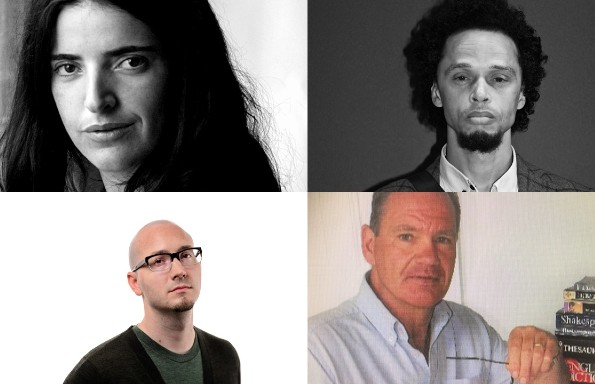Locked-In, Locked-Down: Writing from Prison and Lockdown

The School of Arts have teamed up with WoWFest2021, with students from across the School previewing events from this festival of radical writing, taking place throughout May.
Mackenzie Blacklock (year 3, English) previews Locked-In, Locked-Down: Writing from Prison and Lockdown, Thursday 20 May, 7.30 pm. Tickets £10/£5 concessions.
Whether you feel disconnected from your work, your social life, or the rest of the world, lockdown has made it common for us all to feel restricted. But for those incarcerated, even in normal circumstances it means feeing trapped and isolated from friends and family. With COVID restrictions these feelings intensify. Inmates now spend more than 90% of their day in their cells and primarily alone. This is one of the loneliest times we’ve experienced and most of us haven’t even had it half as bad.
The event ‘Locked-In, Locked Down: Writing from Prison and Lockdown’ explores the feeling of uncertainty within uncertainty. This entire year has been overshadowed with ambiguity: what’s the next step personally? Locally? Globally? With the help of this discussion we can now put ourselves in the position of those who have been experiencing more extreme uncertainty, especially without the rehabilitation activities and social hours that would normally break up confinement.
When the University of Manchester attempted to lock in students in halls of residences with metal fences, barring them from mixing with other buildings, students protested they were being trapped against their will, and that the measures were “inhumane”. But what about being limited to one room as opposed to one household, without a daily walk or being able to order online to curb the boredom? The idea of being sat aimlessly, the day only being broken by meal deliveries, is unimaginable. At least for those in households there was some creative freedom – there was a surge in new hobbies, a flurry of finished manuscripts, an unprecedented situation to write about – but how are inmates able to draw on any experiences if they can’t even talk to one another? The forcing of solitary confinement may be an appropriate option to stop the spread of the virus, but isolation like this is generally used as an extreme punishment and can have detrimental effects on inmates’ mental health.
Equally, austerity and the need to prioritise government spending on COVID means that less funding is being extended to prisons. Because of these cuts, prisoners’ access to face-to-face education has halted and the replacement education packs have not all been distributed. Only 21% of prisoners said it was easy to access education and rehabilitation, leaving the majority underprepared to finish their sentences with the necessary means to enter the community again.
As the vaccines role out and real life begins to re-establish itself, we must think about how we felt during those isolated times and remember that some people are still experiencing this regularly. COVID vaccines for inmates are not a high priority due to the public backlash this could prompt, however the longer we leave it the more damaging it is for prisoners. The need for rehabilitation and socialisation should not take a backseat.
This event presents how writing in both prison and lockdown can help explore our feelings of uncertainty in unprecedented times. The therapeutic nature of creativity allows a better understanding of our circumstances and encourages us to address our emotions head on. This event will highlight the benefits of writing as a form of expression, validating all emotions that may have arisen after being locked-down for so much of the past year.
Part of WoWFest21: celebrating 21 years of radical writing. Check out the full programme here.